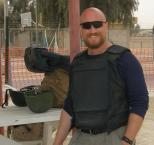 |
Rethinking U.S. Strategy on Terrorism The first televised debate among Republican presidential candidates gave no indication by the majority of those running that ISIS and other stateless insurgents would be dealt with in anyway except by violence. In fact, the idea of attempting to gain acceptance by citizens locked in place in ISIS strongholds was mocked on the Cleveland arena stage and derided as “Iraqi Medicare.” |
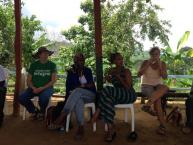 |
#SCARSUMMER Recap For many people, the start of summer symbolizes a period when they put on hold all school-related activities so that they can embark on other fun and exciting endeavors. Individuals at the School for Conflict Analysis and Resolution (S-CAR) are no different, but what tends to set them apart is how they combine the simple pleasures of relaxation with their passion for peacebuilding work. Summer 2015 was no exception, as it was loaded with much activity for the members of the S-CAR community. |
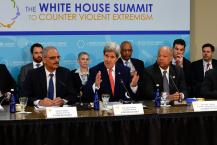 |
S-CAR Students Link Theory to Practice by Countering Extremist Rhetoric Online Conflict 310/795: Engaging Violent Narratives was a course designed to give students the opportunity to respond to a real world problem. There was a need for the expertise and creativity of university students to overcome an issue that governments all over the world are struggling to counter - the use of social media by terrorist organizations to spread extremist rhetoric online and recruit foreign fighters. This is a growing problem, with the Islamic State being the most notable terrorist group undertaking these activities. |
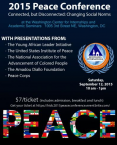 |
2015 Peace Conference Hosteling International – Washington DC, will hold its annual peace conference under the theme Connected, but Disconnected: Changing Social Norms on Saturday, September 12, 2015, from 10:00am to 1:00pm. |
 |
Cecily Cutshall, S-CAR Alumna I recently had the wonderful opportunity to meet an S-CAR MS alumna, Cecily Cutshall, at her “office” which turned out to be a local coffee shop in Arlington. Cecily graduated in May 2012 and has been working for ICF International for the past two and a half years. |
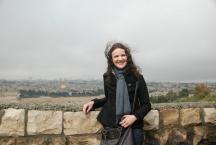 |
Spotlight: Samantha Borders, S-CAR PhD StudentSamantha Borders is an incoming 2015 doctoral student who has spent time working in Israel-Palestine as a development officer at Project Hope Nablus. Samantha returned to the U.S. in 2014 and established an online religious magazine called PourOver that focuses primarily on faith narratives for the subaltern. Following a year of teaching and participation in grassroots initiatives in southeast Georgia, Samantha chose to go back to school to enhance her understanding of religion’s relation to conflict. “I chose this period to further my education at S-CAR because the program was... |
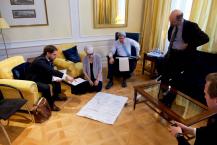 |
What We Learned From the Iran Nuclear DealThe Joint Comprehensive Plan of Action - also called the Iran Deal - signed between Iran, the P5+1 (the five permanent members of the United Nations Security Council - China, France, Russia, United Kingdom, United States, plus Germany), and the European Union on July 14, 2015, has become a landmark agreement in the field of conflict resolution. Considering that there were thirty-five years of a great deal of mistrust between the two main actors - Iran and the US - an agreement could not be reached without years of strategic preparation and trust-building through dialogue, before official negotiations could... |
Contested Memories and Reconciliation Challenges: Japan and the Asia-Pacific on the 70th Anniversary of the End of World War II
Shihoko Goto, Zheng Wang, and Tatsushi Arai
Woodrow Wilson International Center for Scholars
Searching for Better Agreements ... and Finding Them: Contributions of Dean G. Pruitt
William Donohue and Daniel Druckman
Republic Letters
The Contemporary Conflict Resolution Reader
Edited by Tom Woodhouse, Hugh Miall, Oliver Ramsbotham, Christopher Mitchell
Polity
Establishing a Truth and Reconciliation Commission in Burundi: Perspectives on Possibilities and Challenges
Sixte Vigny Nimuraba
Lambert Academic Publishing



